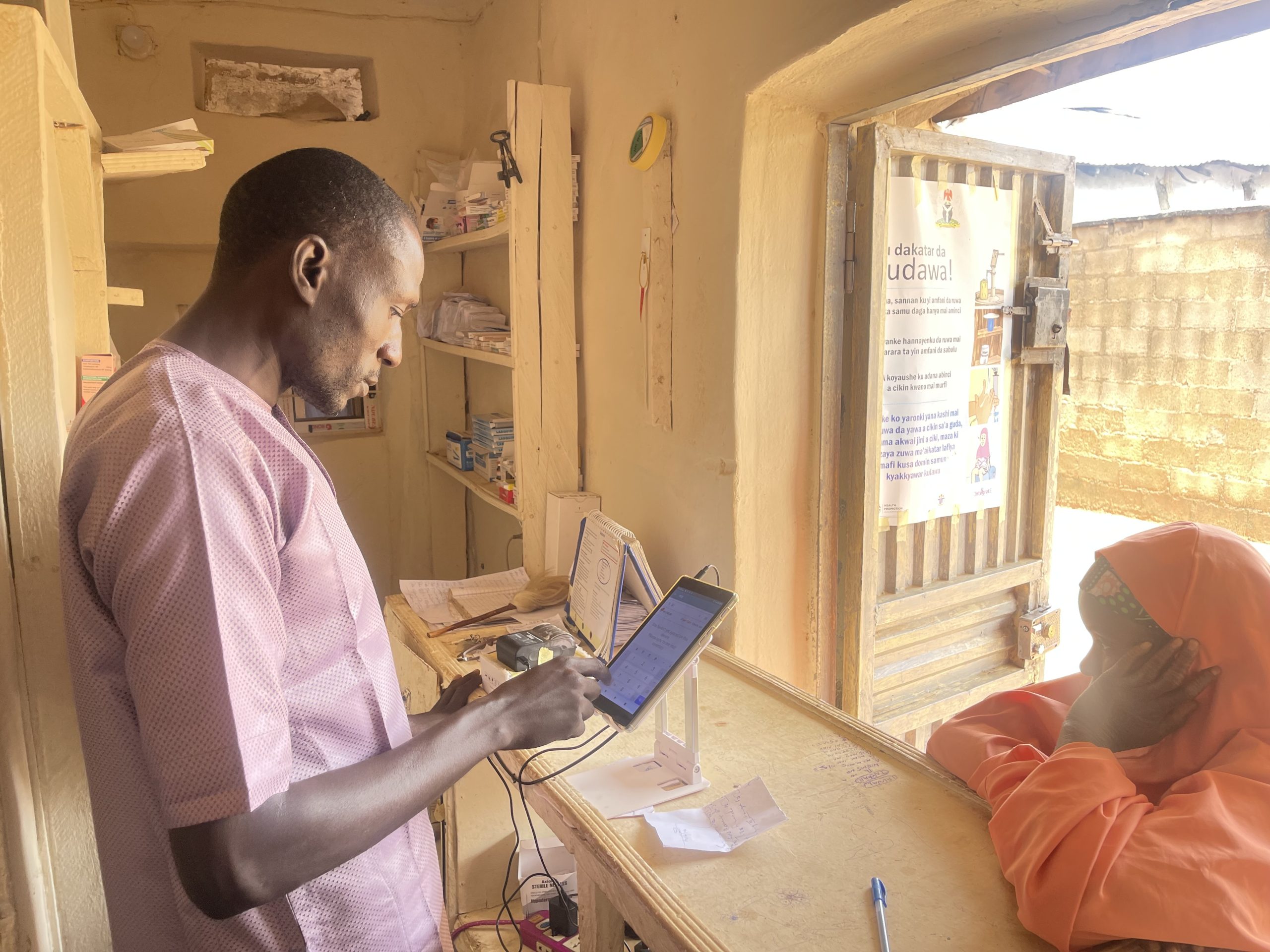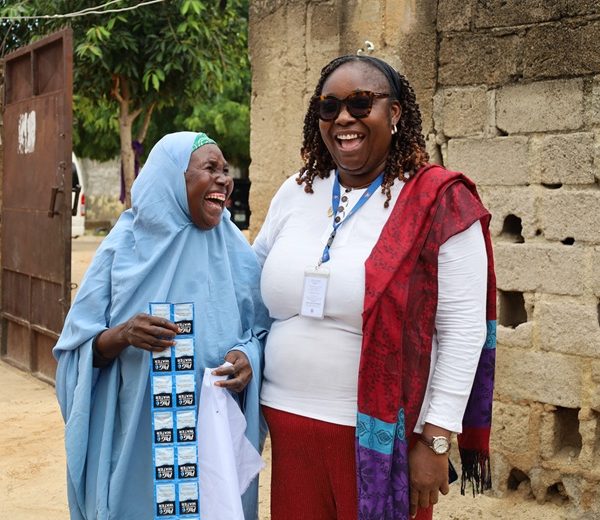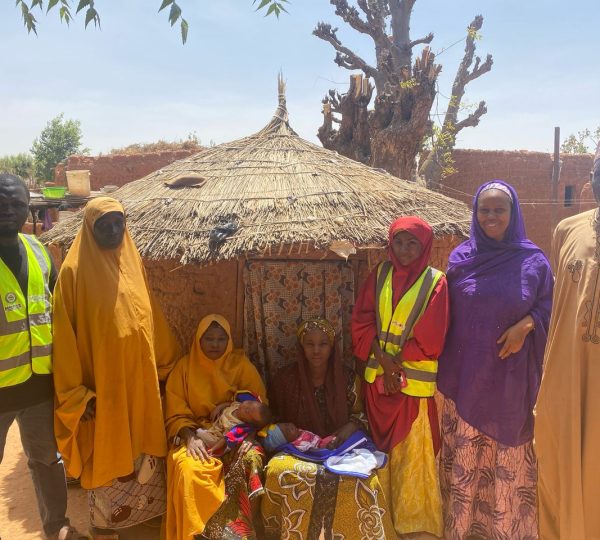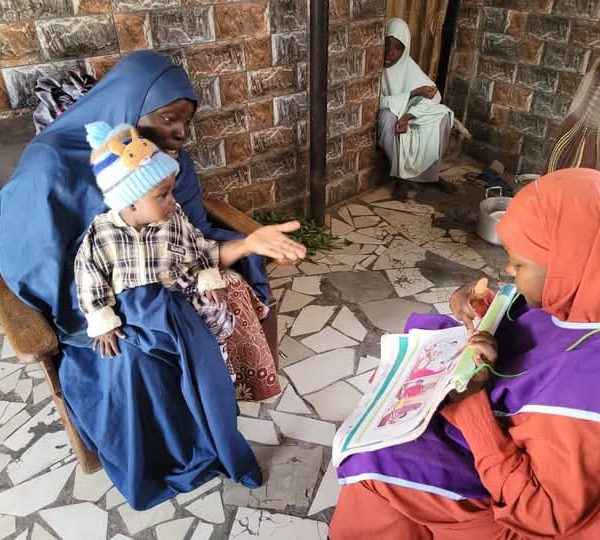Scaling up PPMVs Service Delivery: Sani’s Success Story through SFH PACS Project Intervention
By Judith Dogo, Sebastine Chukwuebuka Ikejide and Hussaini Shafi’u
For Sani, a Tier 2 PPMV in Zaria LGA, Kaduna state, the PACS Project has been transformative, opening new avenues for business growth, delivery of care, and community impact. Before the PACS intervention, Sani faced numerous challenges running his business such as frequent stock-outs of medicines which necessitated his reliance on the open drug market and exposed him to the risk of purchasing substandard health commodities. The lack of access to financing limited his capacity to expand his stock, affecting his ability to serve more communities and grow his business.
Through the PACS project, Sani has accessed ₦1.9 million worth of health commodities from Shelf Life, a Vendor Managed Inventory Organization (VMIO). This opportunity for Sani was made possible through an input financing model that allows him to stock quality health commodities and pay over three months at zero interest. Sani’s revenue before joining the PACS Project per month was seventy thousand (NGN 70,000.00). His revenue has now grown to three hundred thousand naira (NGN 300,000.00) per month. The financing model has also helped minimize stock-outs of essential medicines. Sani now maintains a consistent supply of quality health commodities, benefiting the clients he serves by providing better care.
The PACS project funded by MSD for Mothers was conceived to enhance community health service delivery in underserved areas by providing key incentives to PPMVs and Community Pharmacists (CPs). These incentives include access to microcredits, access to quality commodities, and branding. The project’s overall aim is to improve the adherence of service providers to the Pharmacy Council of Nigeria (PCN) accreditation guidelines by implementing the three prioritised incentives and ultimately increasing the quality and quantity of family planning and primary health care (PHC) services delivered by PPMVs. To further strengthen service delivery, the PACS project introduced a digital inventory management solution through the VMIO model. This digital solution was introduced to address the challenges PPMVs like Sani faced with inventory management. By providing real-time stock tracking, the goal was to prevent stock-outs, ensure continuous access to quality health commodities, and improve business efficiency. Leveraging technology, Sani has taken a significant step forward in optimising his business operations by adopting the VMIO digital application to streamline inventory management. The app provides real-time tracking of stock levels, helping him prevent stock-outs and ensure his customers always have access to quality health products. This digital solution has empowered Sani to run his business more efficiently, saving time and resources that were previously spent on manual inventory processes.
"The digital app has really improved my business. It helps me manage my stock better, so I can focus more on serving my customers," Sani said. "I always know what's in stock and when I'm running low, making it easier to provide better service."
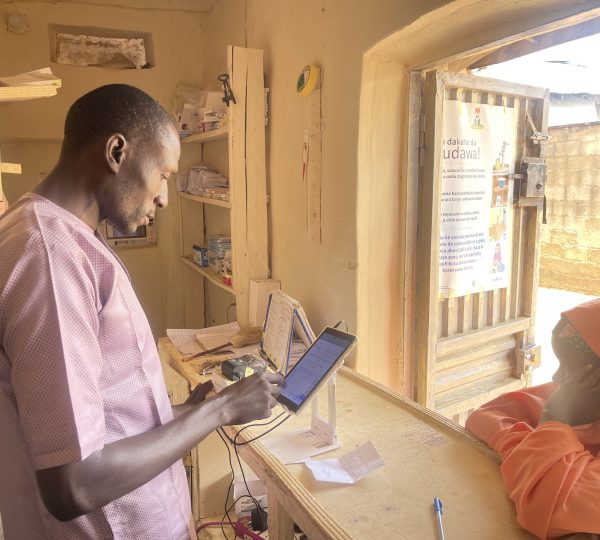
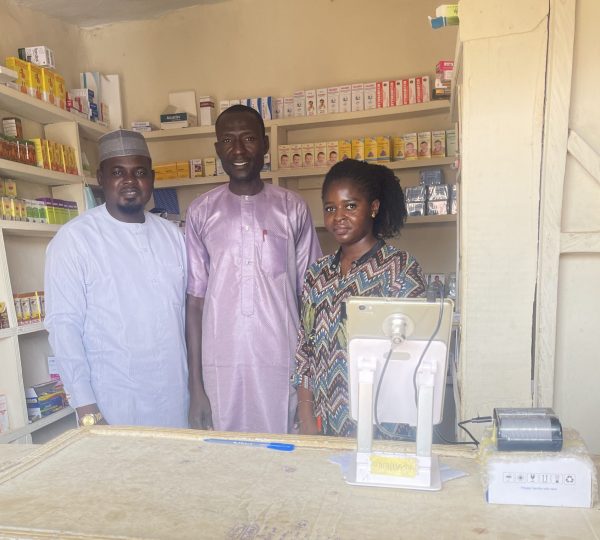
Since adopting these new systems, Sani’s business has seen a surge in customer demand, leading to a significant increase in foot traffic. This growth has enabled him to hire additional staff, expanding his team to better serve his community. The improved services and steady flow of commodities have not only boosted his revenue but have also strengthened his role as a reliable healthcare provider within his community and ward at large.
Sani’s experience emphasises how leveraging technology and data through digital inventory management optimises business, resulting in increased quantity and quality of services, thus aligning with SFH strategy to improve health initiatives. By enhancing inventory management and ensuring consistent stock availability, Sani’s journey highlights the importance of developing an efficient and sustainable supply chain for healthcare products, leading to better health services for the community.

